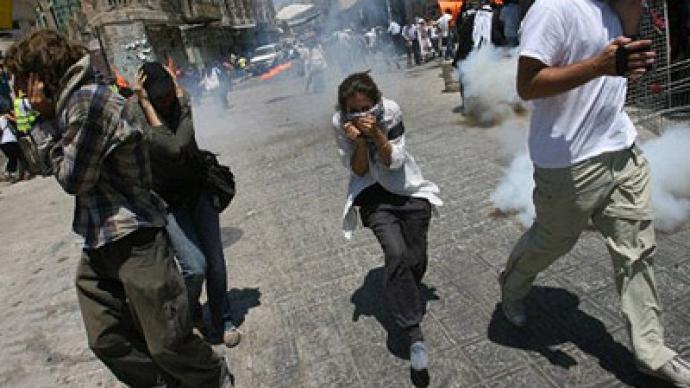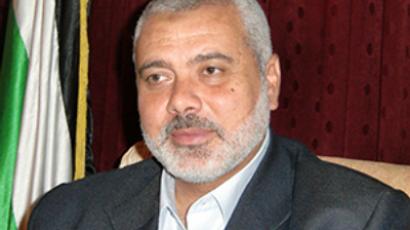Russia supports UN role in resolving Middle East crisis

Russia will favor a resumption of direct negotiations between Israel and Palestine when discussing the Middle East crisis in the upcoming UN General Assembly session, where members may be asked to vote on the question of Palestinian statehood.
"The UN General Assembly session is approaching, and one of the central issues will be the Palestinian issue,” Russian Foreign Minister Sergey Lavrov told a press conference following a meeting with his Finnish counterpart Erkki Sakari Tuomioja. “We would like to do everything to resume direct negotiations between Palestine and Israel soon." Lavrov stressed that Russia supports a central role for the international body in the ongoing talks."Of course, we will speak in favor of the UN playing a central role in the settlement of conflict situations in different countries of the Middle East and Northern Africa," he said.Since the end of the Six Day War in 1967, the international community has been struggling to build a lasting peace that would end the simmering standoff between Israelis and the Palestinians. The process, which has passed through many stages and characters – including the Oslo Peace Accords (1993), the Wye River Memorandum (1998) and the Camp David Summit (2000) – has been a tortuous uphill one. Indeed, there may have been more ink spilled between the two sides over the last 40 years of talks than blood.The seemingly insurmountable obstacles to peace – from the question of Israel relinquishing East Jerusalem in order to facilitate the creation of a Palestinian capital, to the issue of permitting millions of Palestinian refugees the right of return to their homes, now absorbed by the State of Israel – has shredded the Road Map to such a degree that nobody can say in which direction the process is heading.The international community, not to mention the Israelis and the Palestinians, want to see an end to the lengthy standoff, which has done more to threaten international security than any other issue. The failure of the peace process to find an acceptable solution has now caused the Palestinians to request that the issue be resolved once and for all by the United Nations, which will vote on the question of Palestinian statehood at their upcoming General Assembly session in New York.Political observers say the upcoming vote, and regardless of its outcome, will only cause problems for Israel. If the Palestinians get their long-coveted state, Israel will be forced to deal with what could become a stampede on the contested territories. On the other hand, if the Palestinians fail to secure the necessary votes for statehood, the disappointment and despair that they will certainly feel could spark any number of possible outcomes, none of them very appealing.In addition to this growing storm front, UN Secretary General Ban Ki-moon said on Friday he supports a two-state solution for Middle East peace, saying that it was up to UN members whether or not to recognize an independent Palestinian state.He added that the creation of a Palestinian state is “long overdue.” Ban's comments came as Palestinian activists stepped up their campaign for the recognition of a Palestinian state in the United Nations. Speaking on Friday, the UN chief was quoted by AFP as saying he fully supported Palestinian statehood: "The two state vision where Israel and Palestinians can live… side by side in peace and security – that is a still a valid vision and I fully support it."Palestinian Authority President Mahmoud Abbas said the Palestinian request for recognition of statehood within the 1967 borders was out of his hands.Robert Bridge, RT














